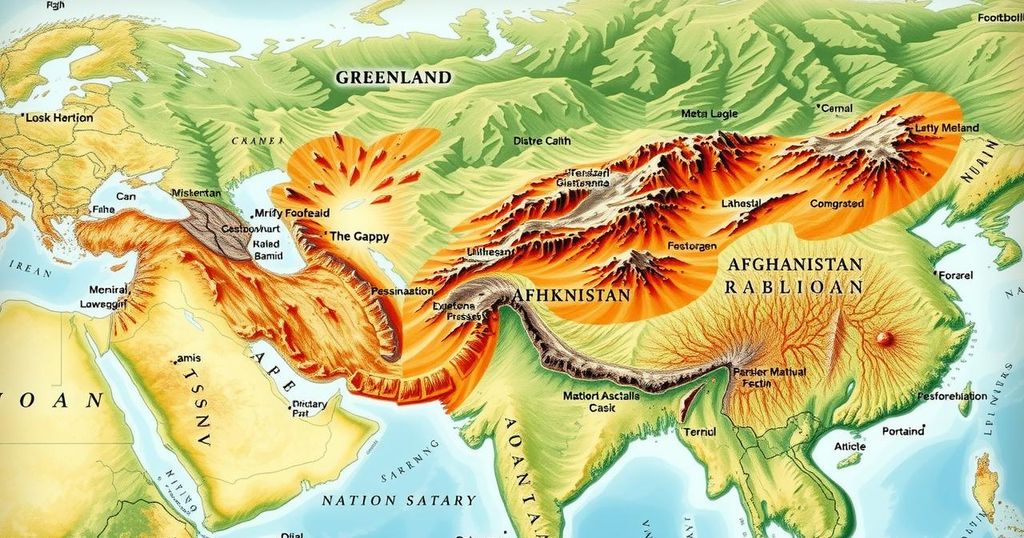The article discusses the significance of Afghanistan and Greenland as key regions in the global race for critical minerals. Afghanistan boasts extensive mineral reserves but is hampered by security issues, while Greenland offers a wealth of minerals crucial to national security yet faces environmental and regulatory challenges. The extraction dynamics of both regions are influenced by geopolitical, economic, and diplomatic factors, shaping the future of mineral resource utilization globally.
The quest for critical minerals is shaping the 21st century in a manner similar to the impact of fossil fuel discoveries in the previous century. These minerals are deemed essential for modern economies, particularly in construction, energy, and advanced manufacturing such as semiconductors and other technology applications. The allocation of mineral resources heavily influences geopolitical and economic relations, redirecting global attention toward regions rich in untapped reserves, specifically Afghanistan and Greenland, both of which present distinct challenges in extraction.
Afghanistan’s geology, shaped by the interaction of multiple tectonic plates, offers a wealth of mineral resources. Historically rich in gold, copper, and semi-precious stones like lapis lazuli, it currently holds an estimated $1 trillion in mineral reserves. This includes significant quantities of copper, aluminum, and iron ore, alongside gemstones and marble deposits. Although illegal extraction has persisted due to security issues, the Taliban’s recent interest in harnessing these resources marks a potential turning point, with international investments paving the way for future development, contingent on resolving ongoing political and security concerns.
In contrast, Greenland’s once glacial territory is now revealed as ice recedes, presenting opportunities for mineral exploitation. The region is believed to possess deposits of 43 out of the 50 minerals classified as crucial for U.S. national security, which includes critical technology minerals like rare earth metals. Greenland’s efforts to attract mining investments through licenses to various companies are hindered by environmental concerns and regulatory challenges, creating hurdles in bringing projects to fruition despite the strategic importance of its resources in reducing dependence on Chinese imports.
As the world increasingly acknowledges the geopolitical significance of minerals in Afghanistan and Greenland, the interplay of military power, economic interests, and diplomatic relations will ultimately dictate who benefits from these wealth-rich regions. The long-term extraction of their resources will depend on navigating the complex factors at play, including political stability, investments, and environmental considerations, highlighting the intricate dynamics involved in the race for critical minerals.
In summary, both Afghanistan and Greenland represent significant frontiers in the global race for critical minerals, driven by their vast untapped reserves and influenced by complex security and environmental challenges. The successful development of these resources will require careful navigation of diplomatic efforts, investments, and regulatory frameworks. Ultimately, the outcomes of these endeavors will reflect a broader interplay of power dynamics in international relations, where access to essential minerals can shape economic and geopolitical landscapes.
Original Source: www.voanews.com




